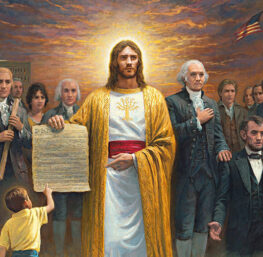Townhall | Dennis Prager | Aug. 18, 2009
When I was a graduate student at Columbia University in the early 1970s, I came to the then-tentative conclusion that I would probably never encounter a morally weaker, more cowardly group of people than college administrators.
While there are exceptions to this rule and there are other institutions that regularly exhibit as much moral cowardice as universities do, nearly 40 years later my conclusion is no longer tentative.
What prompted this conclusion in the 1970s was seeing a handful of radical students take over classrooms at Columbia and shut down the university while professors and deans, individuals whose lives were supposedly dedicated to the open mind and to learning, did nothing. It is almost impossible for me, nearly four decades later, to fully convey how deeply this affected me.
I came to see the modern university as fraudulent. In theory it stood for learning and opening the mind. In practice it stood for appeasement of bullies.
Unfortunately, nothing has happened since then to make me rethink the low view of universities that I developed in my 20s. And the most recent example — this time at Yale University — only adds to the bleak moral record of the modern university.
As reported — to its credit — in the New York Times last week, Yale University Press has banned the publication of any picture of Muhammad from a book it is about to publish on the Muhammad cartoons controversy, “The Cartoons That Shook the World.”
Imagine that. Not only will Yale prohibit a scholarly book on the Muhammad cartoon controversy from publishing the cartoons that are the subject of the book; the university will not allow any picture of Muhammad, even those painted or drawn by Muslims through the ages.
According to the Times piece, the author, “Jytte Klausen, a Danish-born professor of politics at Brandeis University, in Waltham, Mass., reluctantly accepted Yale University Press’s decision not to publish the cartoons. But she was disturbed by the withdrawal of the other representations of Muhammad. ‘All of those images are widely available,’ Ms. Klausen said…”
The author went on to note that even “Muslim friends, leaders and activists thought that … the cartoons needed to be reprinted so we could have a discussion about it.”
. . . more



